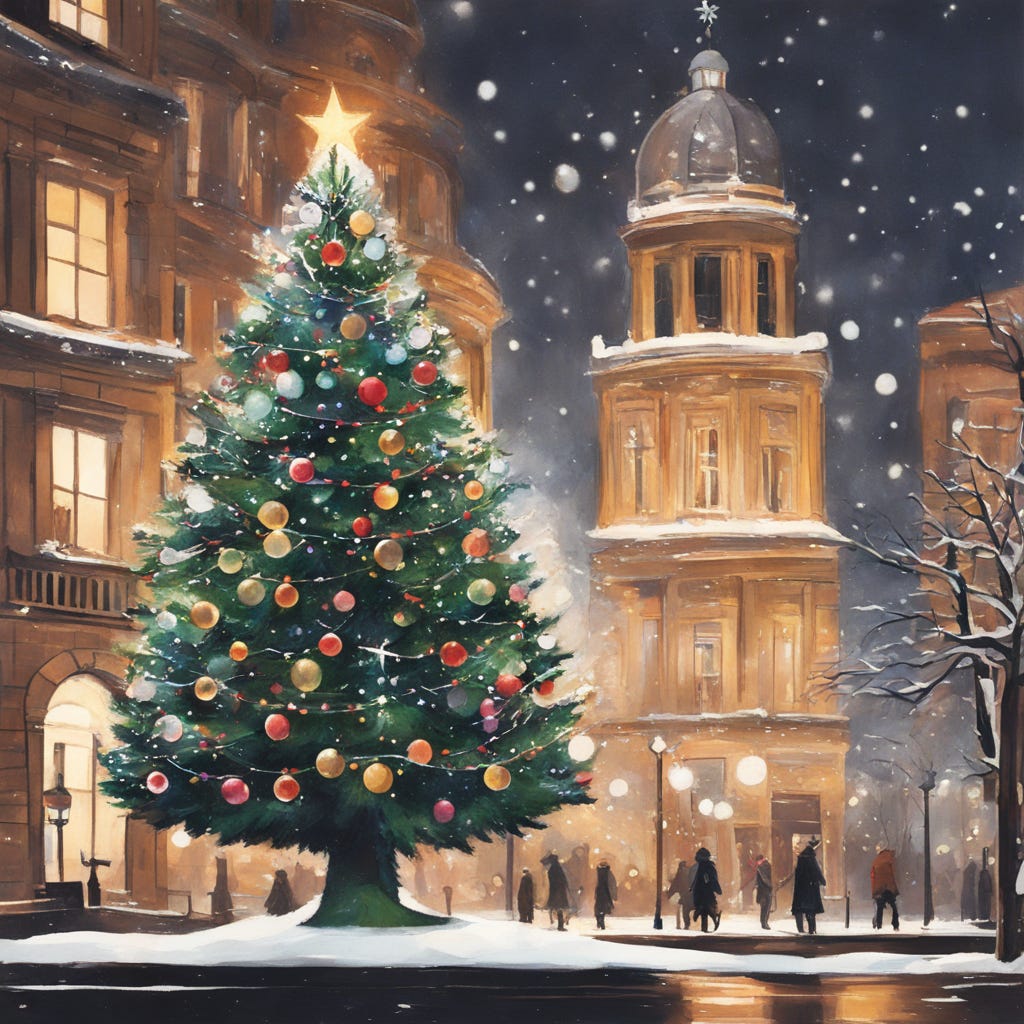Sagolikt: Like a Fairy Tale - Swedish
Are you still reading fairy tales, or... Aren't you, really?
Etymology: Saga (fairy tale) + lik (adjective suffix)
The most noticeable effect of the upcoming New Year and Christmas is the feeling of living in a fairy-tale atmosphere.
Wandering through decorated streets and Christmas markets that remind us of the fairy tales we listened to as children, hearing songs that are only heard at Christmas, living in cities painted red, and seeing decorated pine trees and candles behind the windows of houses make us cheerful, or at the very least put a smile on any face.
The Christmas season has also begun in our home. Our pine tree decorated with small-tomato-shaped red lights, which we set up at least a month in advance, makes us smile on dark mornings and helps us start the day with hope. Our kitchen smells of cake, thick winter socks are worn, and Michael Buble's Christmas carols are played again and over. Happy as the essence of the childhood spirit.
Why do we love fairy tales? Why do we tell fairy tales to our children?
There are several answers to this question. We could say that fairy tales bring us joy. Perhaps, but if you've read The Little Match Girl fairy tale as a kid, then your sense of justice, love, solidarity, and, most of all, your sense of safety as a child was turned upside down and your heart was badly broken.
What about Hansel and Gretel's story? A cottage made of cookies is marvelous, but the witch who is cheating children and planning to eat them like fried chicken thighs is just as frightening.
〰️
Fairy tales, like stories and novels, are works of fiction. They teach us about life by imitating it. We love them because whatever occurs in them, no matter how horrific or nasty, it is not ourselves who live them; it is others. However, as readers, we have the opportunity to experience them deeply without having to live them. This is an amazing opportunity, and it is enjoyable.
Fairy tales, on the other hand, are among the most magical works of fiction and literature because they allow for the impossible and stretch the imagination to new heights. When reading or listening to a fairy tale, the reader or listener permits anything to happen; nothing seems unusual or improbable. They are ready and willing to believe and read. How many things give you the opportunity to happen the impossible? So few.
I have to admit that I don't read fairy tales as much as I used to. I read largely novels and a few short tales, with little poetry. But every now and then, I'll read a fairy tale from the book "A Fairy Tale for Every Day" that I have on my bookshelves. There are 365 fairy stories in it, one for each day of the year. Unfortunately it’s only written in Turkish, however there should be a fairy tale book with same concept in every language. Adults should read fairy tales on occasion as well.
Don't stop telling your kids fairy tales. My happiest, happiest experiences as a kid, among all the happy or horrible ones, were the fairy stories my father made up and told me before sleeping every night. I haven't forgotten the wonder of those times, and when I think about them, I am filled with love, appreciation, and hope.
Sagolikt, the Swedish word for fairy-tale moments, brings to mind both Christmas and those timeless times when my father made up fairy stories for me.
What are these fairy tale, sagolikt moments like for you?
Till next week,
— Gulsun
Thank you for taking the time to accompany me in the story of a new word. Every word of the world’s languages is also ours, belonging to humanity while giving us an essence of the culture in which it was rooted.
We are made of stories—that is, of words.




